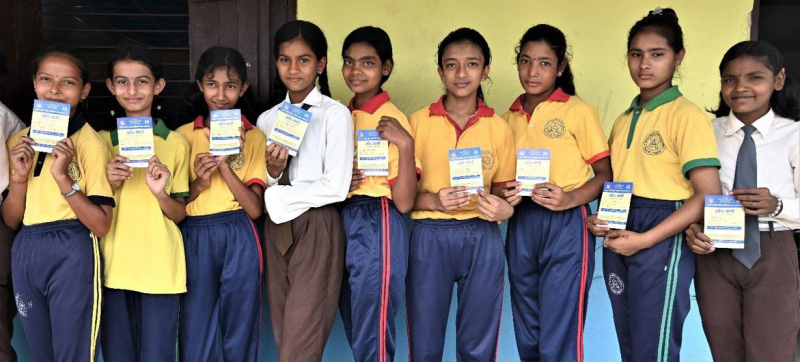- Bangladesh Faces $1.25 Billion Export Loss from US Tariffs |
- Israel Expands Gaza Assault as UN Warns of ‘Genocide’ |
- World Ozone Day Highlights Progress and Future Action |
- DG Health Services gives 12 directives to treat dengue cases |
- Stock market shows recovery as investors back: DSE chairman |
WHO Confirms Nepal Has Eliminated Rubella as Health Threat

A group of students wait in line to get vaccinated against Measles-Rubella during the Outbreak Response Immunization campaign in Mahottari district of Madhesh Province.
Nepal has eliminated rubella as a public health problem, the World Health Organization (WHO) announced on Monday, hailing the achievement as a “remarkable milestone.”
Rubella, also known as German measles, is a highly contagious viral infection that poses serious risks for pregnant women, including miscarriage, stillbirth, or severe birth defects. Safe and cost-effective vaccines have made the disease highly preventable.
“Nepal’s success reflects the unwavering commitment of its leadership, the persistent efforts of healthcare workers and volunteers, and the strong support of informed communities for a healthy start for babies and a future free of rubella,” said Catharina Boehme, Officer-In-Charge of WHO in Southeast Asia.
Nepal introduced rubella vaccines in 2012 through a nationwide campaign targeting children aged nine months to 15 years. A second dose was added to the routine schedule in 2016.
Despite major challenges such as the COVID-19 pandemic and devastating earthquakes in 2015 and 2023, the country achieved over 95 per cent coverage with at least one dose of the vaccine by early 2024.
WHO’s Regional Verification Commission for Measles and Rubella Elimination confirmed the achievement on Monday. “This success is the result of close collaboration between the Government, health workers, partners and communities,” said Dr Rajesh Sambhajirao Pandav, WHO Representative to Nepal.
Initiatives such as “immunisation month,” outreach to unvaccinated children, and district-level immunisation campaigns provided crucial momentum. Nepal also became the first country in WHO’s Southeast Asia Region to introduce a robust laboratory testing algorithm to strengthen rubella surveillance.

